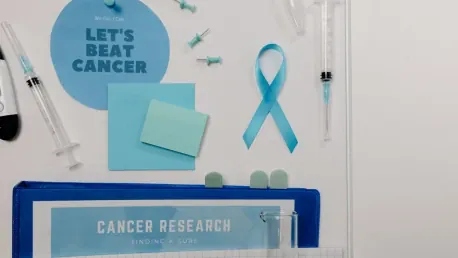In an ambitious move to drive cancer research forward, UNMC leadership alongside several community groups testified before the Nebraska Legislature’s Health and Human Services Committee to underscore the critical need for timely access to state cancer data. Dr. Joann Sweasy, director of the Fred & Pamela Buffett Cancer Center, highlighted that such data is pivotal for conducting significant cancer research focused on better prevention, early detection, and overall enhancement of cancer care for Nebraskans. The importance of this initiative is underscored by interim study LR 377, which reviews the state’s public health registry data collection processes and its accelerated release to research entities.
The testimony illustrated the urgency and necessity of having prompt access to comprehensive cancer data. The collaborative effort between the Nebraska Department of Health and Human Services (DHHS) and the research community is greatly facilitated by legislation introduced by Sen. Brad von Gillern. This legislation aims to expedite the cancer data sharing process, thereby potentially advancing the scope and scale of cancer research in Nebraska. Sen. von Gillern expressed optimism that this collaborative effort would propel scientists closer to discovering a cure for cancer, thereby saving more lives and improving the quality of life for patients.
Legislative Efforts and Community Support
Sen. von Gillern’s initiative has garnered widespread support, evident from various testimonials presented during the committee hearing. Amanda McGill Johnson, executive director of Nebraska Cures, praised Sen. von Gillern’s leadership in enhancing communication channels and data quality between DHHS and research institutions. This legislative push is seen as a breakthrough in fostering a symbiotic relationship between health authorities and scientists, which is crucial for the swift progression of cancer research. Meanwhile, researchers emphasize that timely access to accurate and comprehensive data would enable them to identify trends, causes, and potential solutions more effectively, thus accelerating the pace toward potential breakthroughs.
Dr. Anne O’Keefe of Creighton University further bolstered this initiative by emphasizing the advantages of collaborative work in improving access to public health data for research purposes. According to Dr. O’Keefe, such partnerships are essential for maximizing the utility of health data in scientific studies. These sentiments were echoed by Dr. Sweasy, who asserted that the data-sharing agreement stands to significantly benefit cancer research, thereby directly impacting the lives of Nebraska residents affected by cancer. The confluence of opinions from these experts underscores the necessity and urgency of modernizing the state’s approach to health data sharing.
Advancing Cancer Research Through Data Sharing
UNMC leadership, supported by several community groups, presented to the Nebraska Legislature’s Health and Human Services Committee, emphasizing the urgent need for timely access to state cancer data. Dr. Joann Sweasy, director of the Fred & Pamela Buffett Cancer Center, stressed the importance of this data for enhancing cancer research focused on prevention, early detection, and improving cancer care in Nebraska. The critical nature of this request is backed by interim study LR 377, which examines the state’s public health registry data collection processes and seeks to speed up its release to researchers.
The testimony underscored the importance of prompt access to detailed cancer data. The collaborative effort between the Nebraska Department of Health and Human Services (DHHS) and the research community is greatly supported by legislation introduced by Sen. Brad von Gillern. This bill aims to streamline the cancer data sharing process, potentially expanding the reach and effectiveness of cancer research in Nebraska. Sen. von Gillern is hopeful that this joint initiative will bring scientists closer to finding a cure for cancer, thus saving more lives and improving the quality of life for patients.









